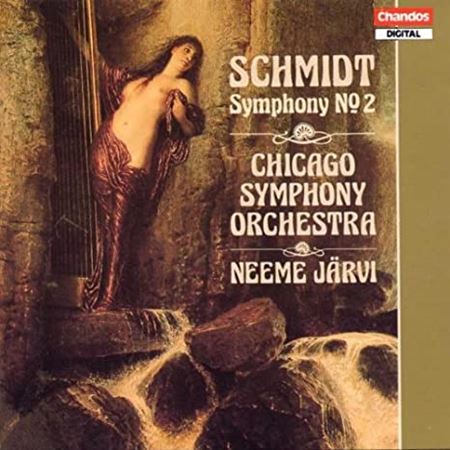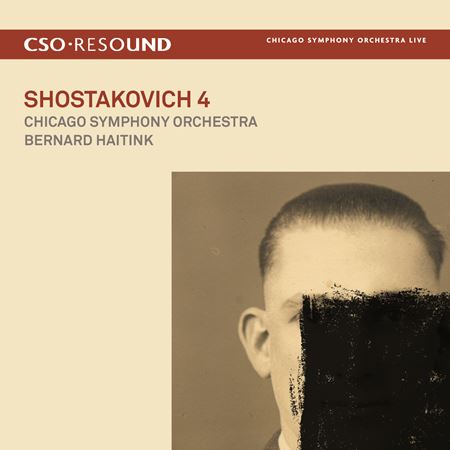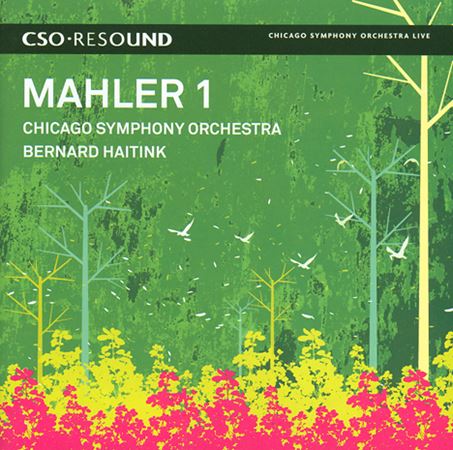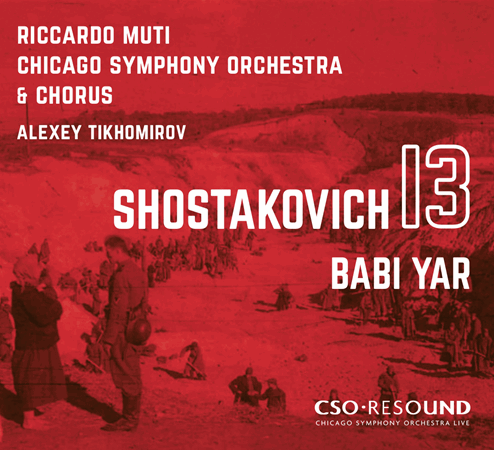Max Raimi joined the CSO’s viola section in 1984.
© Todd Rosenberg Photography
The Chicago Symphony Orchestra’s commercial recording legacy began on May 1, 1916, when second music director Frederick Stock led the Wedding March from Mendelssohn’s A Midsummer Night’s Dream for the Columbia Graphophone Company. The Orchestra has since amassed an extraordinary, award-winning discography on a number of labels—including Angel, CBS, Deutsche Grammophon, Erato, London/Decca, RCA, Sony, Teldec, Victor, and others—continuing with releases on the in-house label CSO Resound under tenth music director Riccardo Muti. For My Favorite CSO, we asked members of the Chicago Symphony family for their favorite recordings (and a few honorable mentions) from the Orchestra’s discography.
Detroit native Max Raimi was appointed to the Chicago Symphony Orchestra’s viola section by eighth music director Sir Georg Solti in 1984. Also a prolific composer, he has received commissions from many ensembles and institutions, including the Library of Congress and the American Chamber Players. In February 1998, Daniel Barenboim led the Orchestra in the world premiere of Raimi’s Elegy for twelve violas, harp, celeste, and percussion, and Riccardo Muti conducted the world premiere of his Three Lisel Mueller Settings, a Chicago Symphony Orchestra commission, with mezzo-soprano Elizabeth DeShong in March 2018. In August 1985, the Chicago Symphony Orchestra’s viola section performed Raimi’s arrangement of The Star-Spangled Banner before a Chicago White Sox game at the old Comiskey Park, and Muti has conducted his orchestration of the University of Michigan fight song “Hail to the Victors” at Hill Auditorium in Ann Arbor on multiple occasions.
SCHMIDT Symphony No. 2 in E-flat Major, Op. 137
Recorded in Orchestra Hall in 1989 for Chandos
Neeme Järvi conductor
"Neeme Järvi has always been one of the conductors I most look forward to seeing on our schedule. He is a big man with wonderful balance, light on his feet like a heavyweight boxer. His size and rather serious mien might be intimidating were there not a thoroughgoing gentleness about him. On the podium, he is always calm and beyond reproach; he is a gentleman and an adult, who can elicit the highest standards without bluster or anger. Among the most skilled technicians I have ever seen on the podium, he is capable of expressing nuances and the most delicate gradations of tempo with no apparent effort. Järvi has a wonderful musical imagination and can bring obscure repertoire that few if any other conductors would dare to program to life.
"One of my favorite recording experiences involves just such an obscure work, the Second Symphony of Franz Schmidt. I believe we had it programmed in the spring of 1989. If memory serves, Járvi came to conduct us immediately after a grueling week; we had just performed and recorded the dauntingly complex Ives Fourth Symphony, back in the days of four-hour studio recording sessions. So, we were exhausted and had not had the time to properly investigate the unknown Schmidt symphony. I remember getting to the first rehearsal early, tanking up on coffee, and gingerly examining the part to see what we were in store for.
"My trepidation was well founded. It was insanely hard, a Richard Strauss tone poem on steroids that went on for something like thirty pages in the viola part. I was clearly not the only musician who had been caught by surprise, and the first run-through of the opening movement was a complete catastrophe; I cannot recall ever hearing the CSO sound worse.
"Järvi was deadpan as always, but his eyes glinted with amusement. He tapped his baton on the music stand a couple of times, and said, ’Very well. Once more—with nuance!’ Along with his skill with the baton, Järvi is extremely skilled at organizing a rehearsal. He solves problems with remarkable efficiency, and he was able to teach us this dense and complex work with astonishing speed. Needless to say, my colleagues and I spent the rest of the week frantically learning the notes of the symphony. I must have spent ten or twelve hours on it between the Tuesday morning rehearsal and the first concert.
“By Thursday night we had mastered it, and the performances went beautifully. The recording was taken from the live concerts, and I have listened to the finished product with great pride; there is not a trace of our disastrous first run-through in it. The piece strikes me as a very worthy composition, not at all deserving of its lack of prominence in the repertoire. It is brilliantly orchestrated, irresistibly romantic, and replete with gorgeous melodies and harmonies. I must wonder, though, if I would feel that way if anybody other than Järvi had conducted it.”
SHOSTAKOVICH Symphony No. 4 in C Minor. Op. 43
Beyond the Score: Is Music Dangerous?
Recorded in Orchestra Hall in 2008 for CSO Resound
Bernard Haitink conductor
Gerard McBurney narrator
Nicholas Rudall actor
2008 Grammy Award for Best Orchestral Performance
"The Beyond the Score series created by Gerard McBurney was an extraordinary initiative on the part of the CSO, a multimedia blend of archival photographs and video seamlessly connected with a script that brought the characters and indeed the entire world that influenced our greatest composers to life. The Shostakovich Fourth Symphony edition was particularly fascinating, bringing an ill-fated, unjustly neglected, and harrowing work into brilliant focus. The Orchestra played its heart out for our beloved Maestro Haitink, as always; it is an utterly electric performance."
MAHLER Symphony No. 1 in D Major
Recorded in Orchestra Hall in 2008 for CSO Resound
Bernard Haitink conductor
"At first glance, it might seem as if another version of this exhaustively recorded work would be quite superfluous. But Haitink’s take on Mahler’s First Symphony is unlike any of the dozens of other interpretations I have experienced. One detail that baffled me at first, and then utterly convinced me, was a uniquely deliberate approach to the ultimate peroration. The final pages, with their clear thematic reference to the ’And he shall reign forever and ever’ passage from Handel’s Messiah can too often sound lightweight, unduly athletic, and out of proportion to the rest of the symphony. Haitink achieved a grandeur and majesty at the end of the symphony that I found richly satisfying."
SHOSTAKOVICH Symphony No. 13 in B-flat Minor, Op. 114 (Babi Yar)
Recorded in Orchestra Hall in 2018 for CSO Resound
Riccardo Muti conductor
Alexey Tikhomirov bass
Men of the Chicago Symphony Chorus
Duain Wolfe director
"If Maestro Riccardo Muti were not among the world’s preeminent conductors, he could have been a truly great actor. I always look forward to any music we perform with him that involves a text, because he is uncanny in his ability to bring words to life, to give them a sound and a flow that makes their meaning irresistibly powerful. Yevtushenko’s poetry has never been more vivid than in this recording. No doubt this is in part due to the artistry of the soloist, Alexey Tikhovirov and the men of our extraordinary Chicago Symphony Chorus. But the insights of Maestro Muti are a crucial factor in making this interpretation so memorable."
MFC-012







